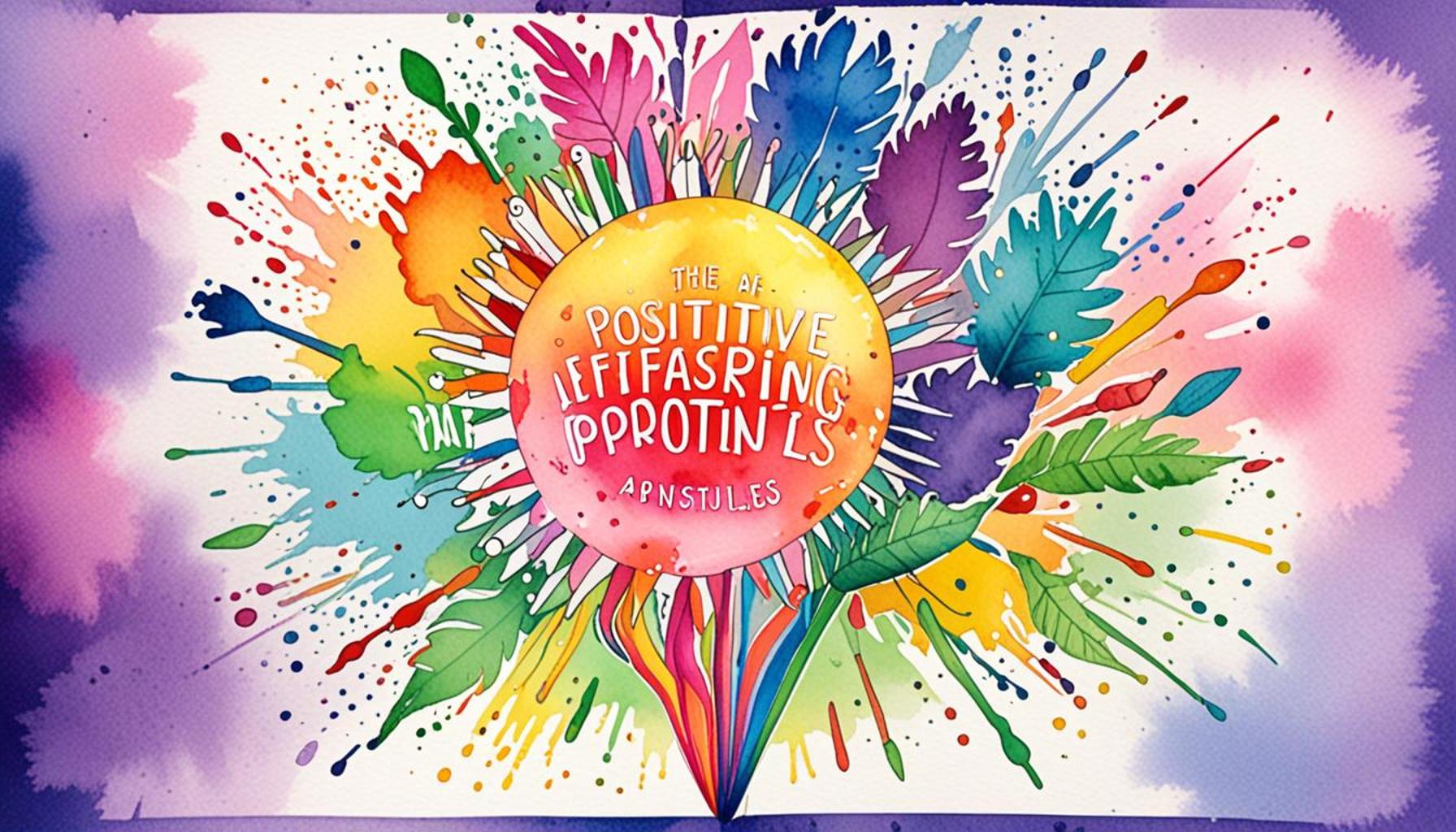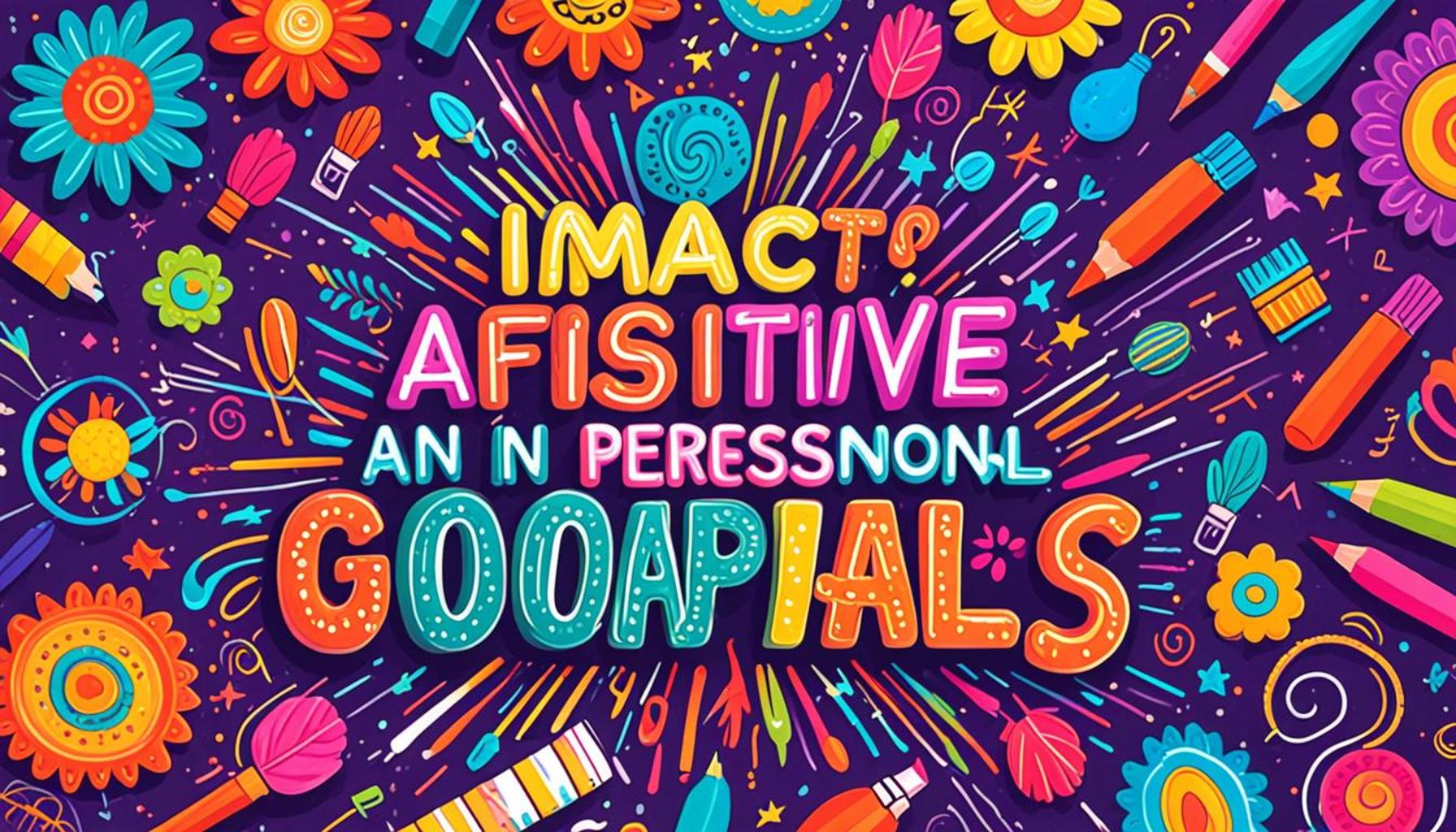The Role of Positive Affirmations in Transforming Limiting Beliefs into Learning Opportunities

A Journey of Transformation through Positive Affirmations
Imagine starting your day not just awake, but alive with potential. For many people, this transformation begins with the practice of positive affirmations. These simple yet profound statements have the power to reshape a person’s mindset, enabling them to replace limiting beliefs with thoughts that uplift and encourage growth. In a nation as diverse and vibrant as Nigeria, the power of positive affirmations can resonate deeply, offering a pathway to personal and communal resilience.
One of the most significant advantages of positive affirmations is how they boost confidence. In a country where the hustle and bustle can often overshadow individual achievements, affirmations serve as a beacon of self-worth. For instance, a student preparing for external exams may repeatedly affirm, “I am capable of achieving greatness,” which instills a powerful sense of belief in their abilities. This kind of positive self-talk fosters a can-do attitude, encouraging individuals to strive for success in a competitive environment.
Moreover, positive affirmations can shift mindsets. In daily life, particularly in Nigeria where challenges abound—from economic fluctuations to socio-political issues—the ability to redirect one’s thoughts from doubt to possibility can be life-changing. An entrepreneur facing tough market conditions might declare, “I will find my way through this,” shifting focus from the obstacles they encounter to the opportunities they can create. This shift is crucial in nurturing resilience and analytical thinking, making it easier to tackle unforeseen challenges.
Another vital benefit of positive affirmations is how they cultivate learning. In a culture that sometimes stigmatizes failure, reaffirming that “every setback is a setup for a comeback” can dramatically alter perceptions. By encouraging individuals to view failures as lessons rather than defeats, affirmations promote a mindset geared towards continuous growth and knowledge acquisition. For example, a young professional reflecting on a job rejection can adopt the perspective that this experience is an opportunity to enhance their skills and reapply with newfound confidence.
Additionally, positive affirmations serve as daily reminders of personal ambitions and aspirations. When these affirmations align with the rich cultural narratives of Nigeria—such as the celebrated “Nigerian spirit of resilience”—they not only uplift individual spirits but also contribute to a broader ethos of community strength and perseverance. Communities that embrace these positive practices often find themselves better equipped to handle collective challenges, fostering a spirit of unity and collaboration.

Research has shown that engaging in positive affirmations can lead to significant changes in the brain, particularly in the neural pathways associated with self-doubt and insecurity. Regular practice aids in building psychological resilience, allowing individuals to reframe their limiting beliefs into something manageable and actionable. As more Nigerians explore this transformative practice, it holds the potential to cultivate a generation better equipped for personal success and societal advancement.
LEARN MORE: This related article may interest you
Unleashing Potential through Positive Affirmations
Positive affirmations serve as a vital tool in overcoming the barriers that limiting beliefs impose on individuals. At their core, these affirmations are designed to replace negative self-talk with empowering statements that underscore a person’s inherent abilities. For instance, in a diverse environment like Nigeria, where cultural expectations can often weigh heavily, individuals may grapple with the belief that they are not good enough. By consciously reciting affirmations such as, “I am worthy of success,” they actively work to dismantle these negative perceptions.
The practice of positive affirmations not only enhances individual confidence but also aids in redefining one’s narrative. For many Nigerians aspiring to excel in various fields—be it business, academics, or even the arts—recognizing their value becomes paramount. A university student facing pressures to perform may repeat affirmations like “I am intelligent and capable,” thereby reinforcing their self-image and academic potential. This daily ritual transforms self-doubt into a robust mindset geared for achievement.
Transforming Mindset for Opportunity
The journey from limiting beliefs to empowering opportunities requires a significant shift in mindset. Positive affirmations play a critical role in this transformation. In a country rife with economic hurdles and socio-political struggles, it is easy to succumb to a victim mentality. However, individuals who employ affirmations actively challenge this narrative. An entrepreneur, for example, might maintain resolve by affirming, “I am resilient and will find solutions,” allowing them to focus on innovative ways to navigate tough market conditions. This practice shifts energy away from despair and towards proactive problem-solving.
Cultivating a Culture of Learning
In addition to boosting confidence and shifting mindsets, the role of positive affirmations in cultivating a culture of learning cannot be overlooked. In Nigeria, where fear of failure can prevent individuals from taking risks, affirmations such as “I learn from my experiences” encourage a perspective that values growth over perfection. This approach can drastically alter how setbacks are perceived. Instead of viewing a failed project or unsuccessful job application as a defeat, individuals can see it as an essential step in their journey towards success.
- Increased resilience: Embracing failures as learning opportunities fosters a resilient mindset.
- Heightened creativity: A positive self-view encourages individuals to explore innovative solutions rather than retreating into doubt.
- Community growth: When individuals adopt affirmations, the collective mindset of communities enhances, leading to shared progress.
The impact of these affirmations extends beyond the individual, influencing the collective psyche of communities throughout Nigeria. By adopting a learning-oriented view, people can transform adversities into launching pads for further advancement. This cultural shift could signify a departure from traditional stigmas surrounding failure, promoting a society where risk-taking and innovation become the catalysts for sustainable growth.
As such, the role of positive affirmations in transforming limiting beliefs into valuable learning opportunities cannot be underestimated. Their potential to reshape individual and collective narratives paves the way for a brighter, more resilient future for Nigeria’s citizens and the nation as a whole.
The Impact of Positive Affirmations on Personal Growth
Positive affirmations serve as a powerful tool in reprogramming our subconscious mind. By repeatedly stating affirmations, individuals create a mental landscape where new, empowering beliefs can take root. This gradual shift in mindset not only replaces limiting beliefs but also opens the door to new learning opportunities. Research shows that when individuals affirm their abilities and potential, they are more likely to approach challenges with resilience and optimism.Moreover, positive affirmations can significantly enhance self-awareness. When individuals consciously choose affirmations that resonate with their life goals, they are encouraged to evaluate their current beliefs and behaviors. This process of reflection can unveil deeply held fears and doubts, allowing for a transformative understanding of the self. As obstacles are acknowledged and confronted, the lessons learned become stepping stones toward personal development.In educational environments, the effect of positive affirmations is particularly pronounced. Students who engage in affirmative practices often demonstrate improved academic performance. They cultivate a growth mindset, viewing failures as opportunities to learn rather than setbacks. This shift fosters a nurturing educational atmosphere, empowering learners to take risks and embrace challenges with enthusiasm.A fascinating example comes from various therapeutic practices where clients utilize affirmations to combat negative self-talk. This technique disrupts automatic negative thoughts and promotes a healthier internal dialogue. By integrating positive affirmations into daily routines, individuals not only redefine their self-perception but also enhance their overall well-being. The journey of transforming limiting beliefs into actionable learning opportunities is supported by a foundation of positivity. When individuals commit to the practice of affirmation, they inadvertently create a ripple effect that inspires growth within themselves and those around them. This makes exploring the depths of positive affirmations an enriching endeavor, full of potential and possibility.
SEE ALSO: Click here to read another article
Empowering Individuals through a Shift in Perspective
The transformative power of positive affirmations extends beyond mere statements; they foster a profound shift in perspective that empowers individuals to embrace challenges differently. In the face of Nigeria’s dynamic socio-economic landscape, where citizens often confront obstacles such as unemployment and inadequate resources, affirmations can serve as essential catalysts for change. For instance, a young woman aspiring to launch a startup amidst financial constraints might declare, “I attract resources and opportunities for growth.” This affirmation not only nourishes her entrepreneurial spirit but also opens the door to innovative solutions—a critical mindset for anyone navigating the complexities of entrepreneurship in Nigeria.
Harnessing Affirmations for Social Mobility
As Nigeria strives for economic development, the potential of positive affirmations to promote social mobility is noteworthy. Many Nigerians believe that socio-economic status is a fixed determinant of success. However, through the consistent practice of affirmations, individuals begin to reframe their narratives. For example, a grassroots worker striving for better education can affirm, “I am capable of achieving my dreams regardless of my background.” By improving their self-image, they become more inclined to seek opportunities, elevating not only their prospects but also inspiring others within their community to pursue their aspirations.
- Breaking generational cycles: Positive affirmations can disrupt inherited limiting beliefs that stymie progress across generations.
- Encouraging lifelong learning: Individuals who affirm their ability to learn evolve, viewing each experience as a building block rather than a barrier.
- Building supportive networks: When people share their affirmations with others, they foster a culture of encouragement that nurtures communal success.
This social impact deepens as communities adopt affirmations collectively. Programs that facilitate group affirmations, such as workshops or community forums, can bolster this movement towards a learning-oriented mindset. By encouraging participants to share their affirmations and successes, these gatherings help normalize the notion that failure is a stepping stone rather than a dead end. This cultural shift is most visible in cities like Lagos, where young entrepreneurs gather to exchange ideas and support one another’s journeys.
The Influence of Social Media on Affirmation Practices
In an increasingly digital world, social media plays a crucial role in disseminating the practice of positive affirmations. Platforms like Instagram and Twitter have become forums where individuals express their affirmations, receiving support from their followers and fostering a community of like-minded individuals. Nigerian influencers and motivational speakers leverage these platforms to share daily affirmations, making them accessible to a broader audience. This online community not only reinforces personal beliefs but also develops a sense of camaraderie, as people share their transformation stories.
Moreover, the rise of hashtags such as #PositiveVibesOnly and #YouAreEnough showcases the collective movement towards embracing positivity. This movement encourages individuals to confront their limiting beliefs openly and pursue personal growth through affirmations. With constant reminders of their worth and potential coming from various digital interactions, individuals are more inclined to take action that leads to meaningful life changes.
Ultimately, the integration of positive affirmations into daily life creates an environment where limiting beliefs dissolve, making way for a culture of learning and resilience. By enhancing self-efficacy and promoting social mobility, affirmations enable Nigerians to navigate challenges while celebrating their collective growth.
ADDITIONAL INSIGHTS: Expand your understanding here
Conclusion: Embracing Change through Positive Affirmations
The journey of transforming limiting beliefs into powerful learning opportunities is one that requires intentional effort and resilience. Positive affirmations act as beacons of hope, guiding individuals through Nigeria’s intricate socio-economic labyrinth. By reshaping self-perception and redefining success, affirmations empower people to rise above constraints, whether they be financial, social, or personal. As demonstrated throughout this article, embracing affirmations not only enhances individual growth but also ignites a communal movement toward shared aspirations.
Furthermore, the significant role of social media in amplifying affirmation practices cannot be overstated. The digital age has paved the way for a collective embrace of positivity, where individuals can connect, share, and inspire one another’s journeys. Hashtags like #YouAreEnough have transcended mere trends; they reflect a cultural shift towards recognizing the limitless potential within every Nigerian. This burgeoning online community fosters engagement, collaboration, and a spirit of support that reinforces the notion that learning is a lifelong endeavor.
As we move forward, the integration of positive affirmations into daily life is vital for dismantling generational barriers and promoting social mobility. By consistently cultivating a mindset that values progress over perfection, Nigerians can find strength in their narratives, allowing for innovation, resilience, and ultimately, success. With positivity as the cornerstone of growth, the future is bright—one affirmation at a time.


